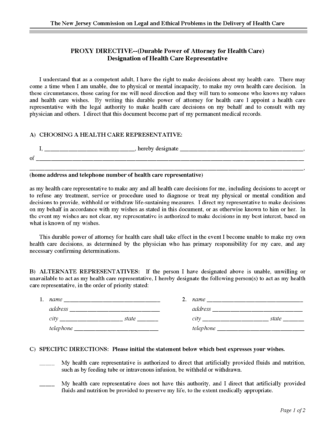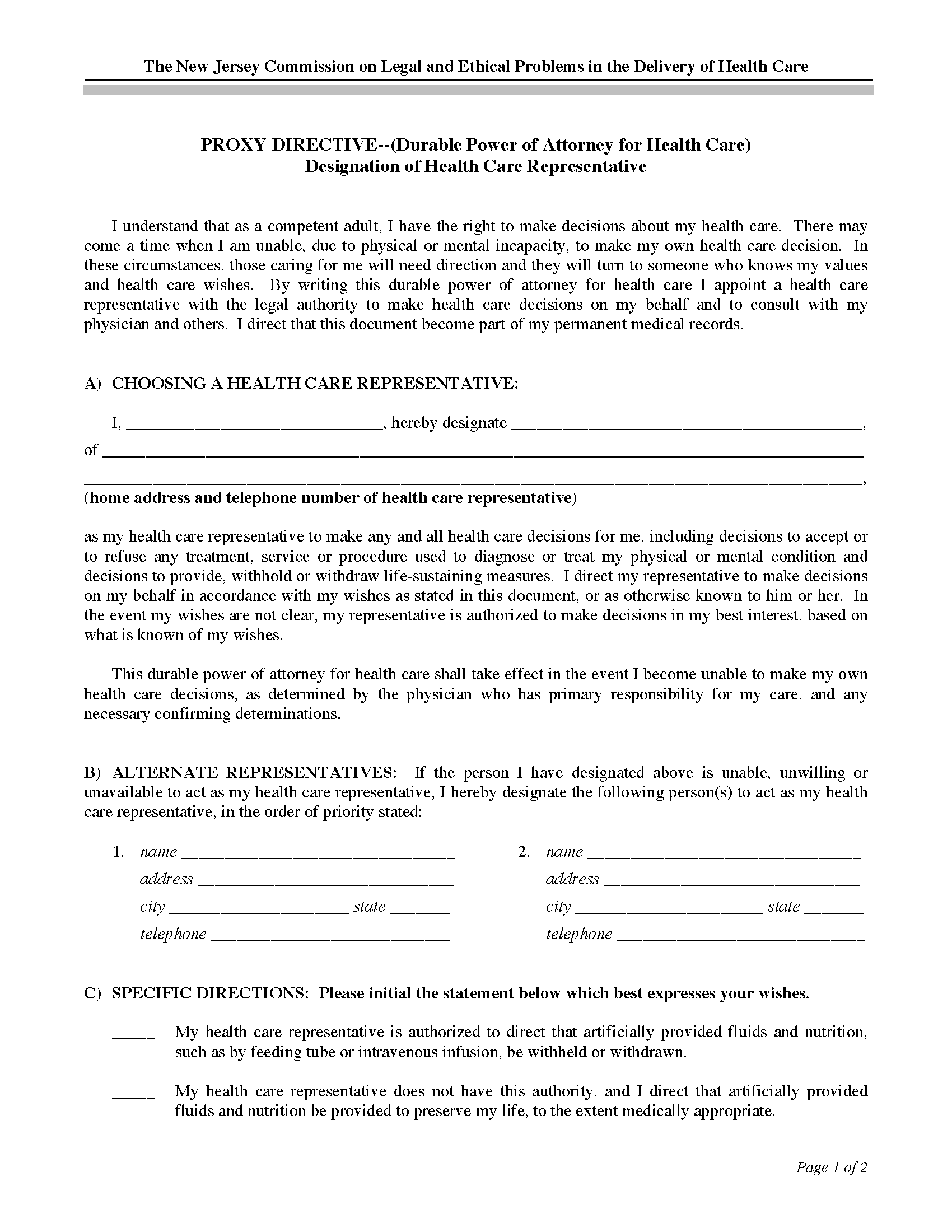Signing Requirements
In New Jersey, an advance directive must be signed by two witnesses or a notary public.[1]
The designated health care agent cannot act as a witness.
Advance Directive (Preview)
Revocation
An advance directive can be revoked by the following methods[2]:
- Notifying the health care provider or agent orally, in writing, or by any other means that communicates their intent.
- Signing a new advance directive.
If the principal’s spouse is the health care proxy, their appointment is revoked after divorce or separation.

